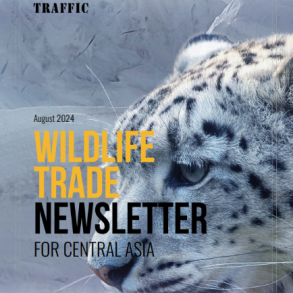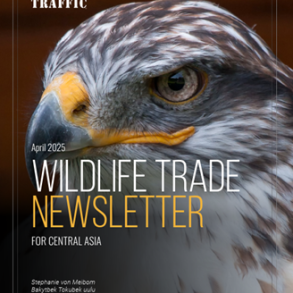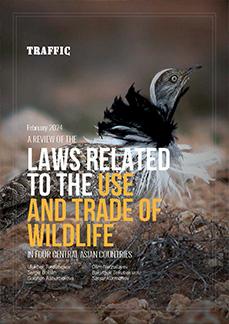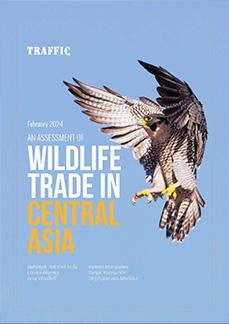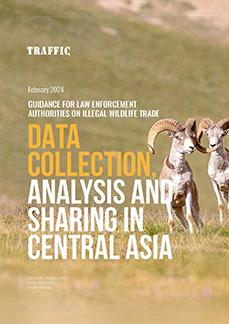
Combating Wildlife Trafficking in Central Asia
Centra Asia is home to many unique species of plants, animals and fungi. Perhaps inevitably, it is therefore a key location for wildlife trade. From the ancient saiga antelopes to the elusive snow leopard and various species of birds and reptiles, this region is both a source of unique and precious wild species which are illegally trade across the world, as well as a destination and an important transport route.
TRAFFIC– the world’s leading NGO working on illegal and legal wildlife trade – has been working in Central Asia for over two decades, tackling wildlife trafficking and unsustainable trade.
Since 2022, TRAFFIC’s Bishkek project office – as part of wider TRAFFIC’s programme in the European region - has coordinated efforts across Kazakhstan, Kyrgyzstan, Tajikistan, Uzbekistan, and Turkmenistan. These efforts include collaboration with national authorities, civil society, and international partners to stop illegal wildlife trade and improve legal trade sustainability. TRAFFIC delivers this work through delivering whole system change, involving policy development, law enforcement capacity building, and regional cooperation.
Central Asia Focus:
Protecting biodiversity by promoting sustainable trade
Examples of TRAFFIC’s work within Central Asia
TRAFFIC is implementing several major projects:
- Combatting wildlife crime in Kyrgyzstan, Kazakhstan, and Uzbekistan by building law-enforcement capacity. This project is funded by the U.S. Bureau of International Narcotics and Law Enforcement Affairs (INL).
- Reducing poaching and trafficking for the exotic pet trade, by researching the dynamics of illegal pet trade in the region. Also funded by INL.
Both these initiatives are implemented with partners such as Fauna & Flora, ACBK and Ecological Resource Center “Ekomaktab” and are part of a broader strategy to enhance regional capacity to combat wildlife crime through informed, collaborative, and evidence-based action. TRAFFIC’s work contributes to stronger institutional responses, better cross-border coordination, and improved legal frameworks to protect Central Asia’s biodiversity from illegal and unsustainable trade.
Contact us in Central Asia
Central Asia
+996 554 555550

TRAFFIC’s work in Central Asia plays a vital role in protecting biodiversity by promoting sustainable trade, supporting law enforcement, and strengthening regional cooperation to combat illegal wildlife trafficking.
Bakytbek Tokubek Uulu, Programme Manager - Central Asia
Wildlife trade newsletter for Central Asia
Addressing wildlife trade challenges in Central Asia
Combatting wildlife crime
Law enforcement agencies in Kazakhstan, Kyrgyzstan, Tajikistan, and Uzbekistan have strengthened their efforts against illegal wildlife trade by systematically collecting, analysing, and sharing data on traders, networks, and trafficking routes across borders. Enhanced cross-border collaboration is key to disrupting criminal operations and ensuring accountability. This work is supported by the U.S. Bureau of International Narcotics and Law Enforcement Affairs (INL).
Reducing poaching and trafficking for the exotic pet trade
Conducting research into the dynamics of the illegal pet trade in the region, alongside a baseline assessment of the scale and trends in both legal and illegal wildlife trade in Kazakhstan, Tajikistan, and Uzbekistan. This initiative is supported by funding from INL.
Leopards - Species we work with at TRAFFIC
Trialling Wild Harvest Improvement Projects for sustainable wild plant trade
TRAFFIC focuses on innovation to incentivise and enable mechanisms for certification of wild-harvested plants and fungi for the benefit of people and conservation. Our pilots in this project are in Uzbekistan and in Morocco. This project is funded by the UK Defra Darwin Initiative.

